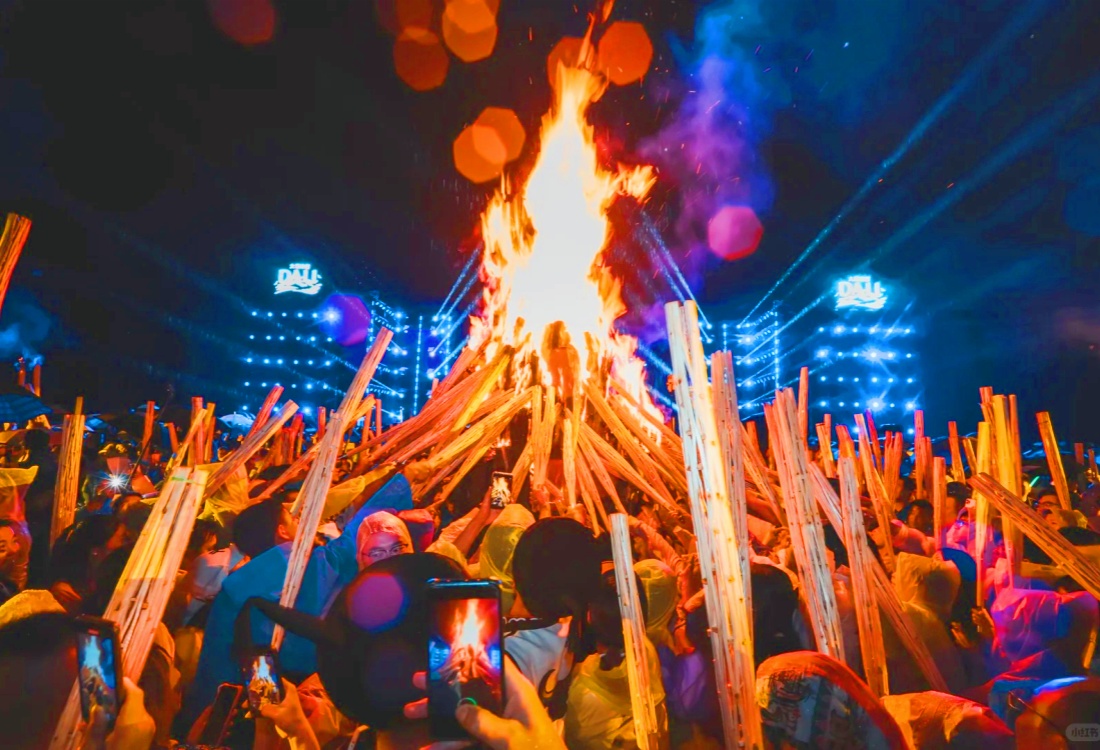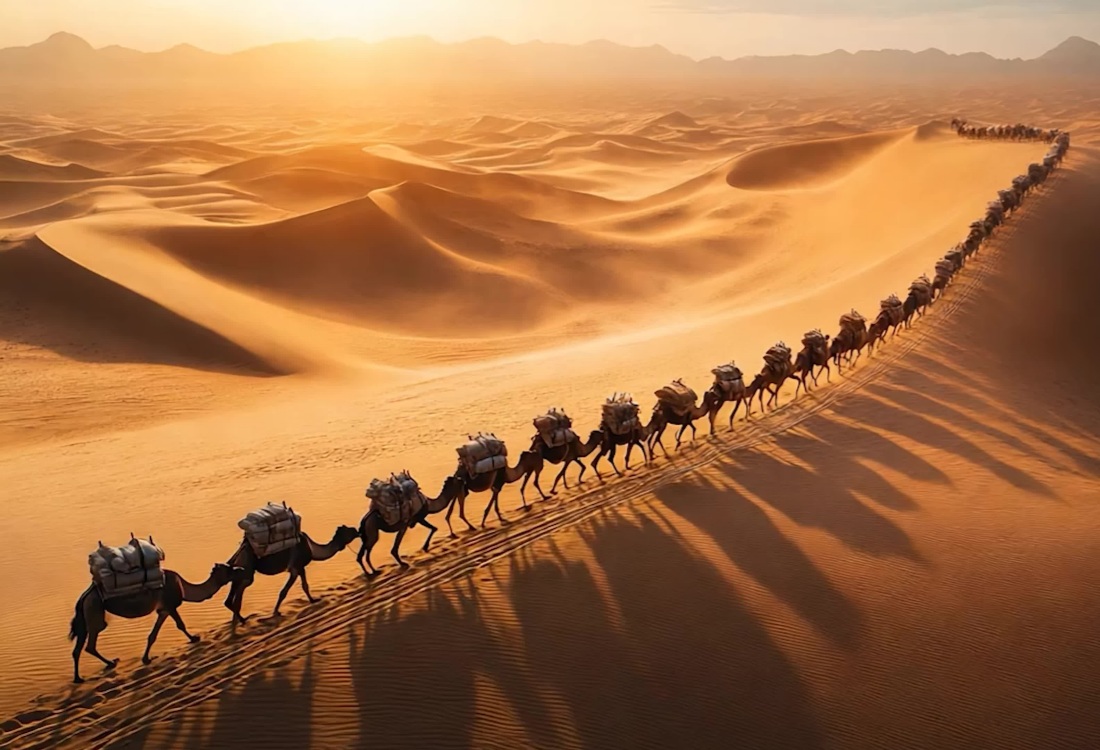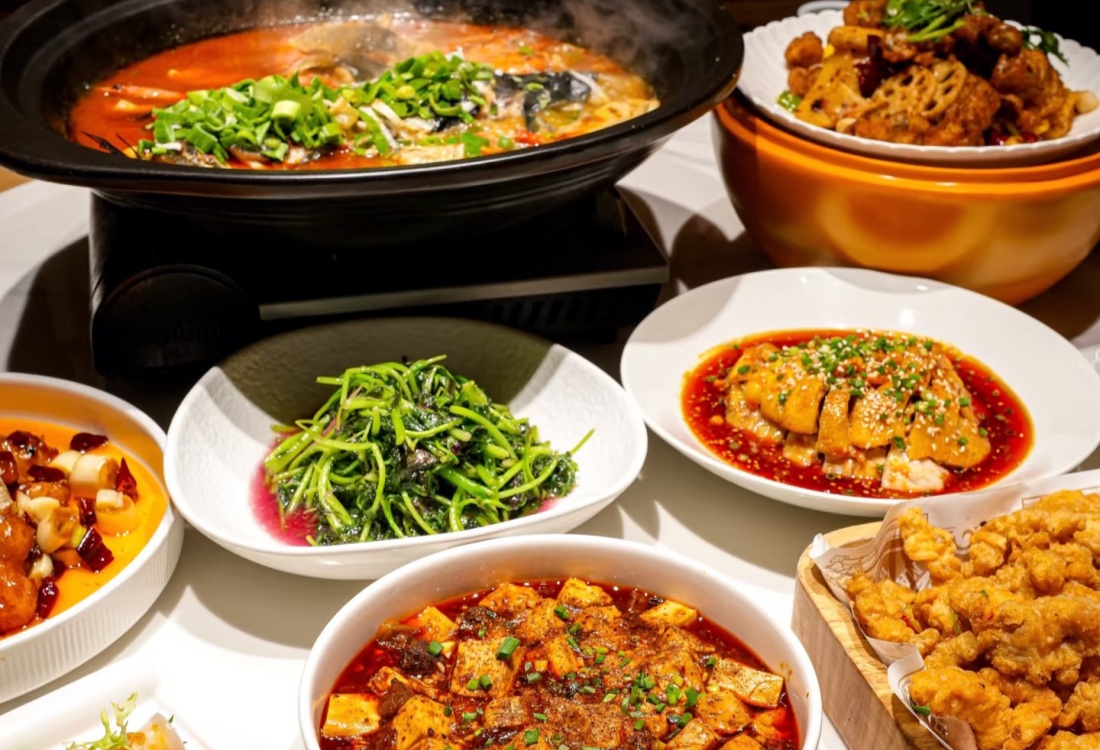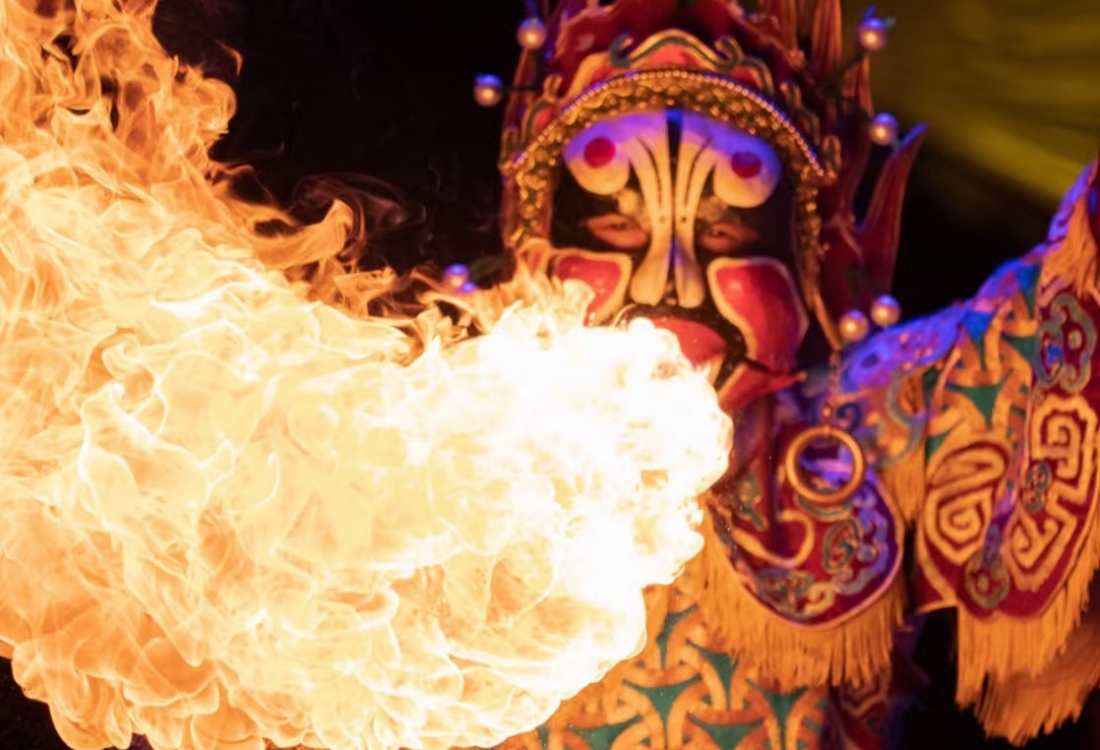Table of Contents
ToggleWater Splashing Festival (泼水节) – Dai Ethnic New Year
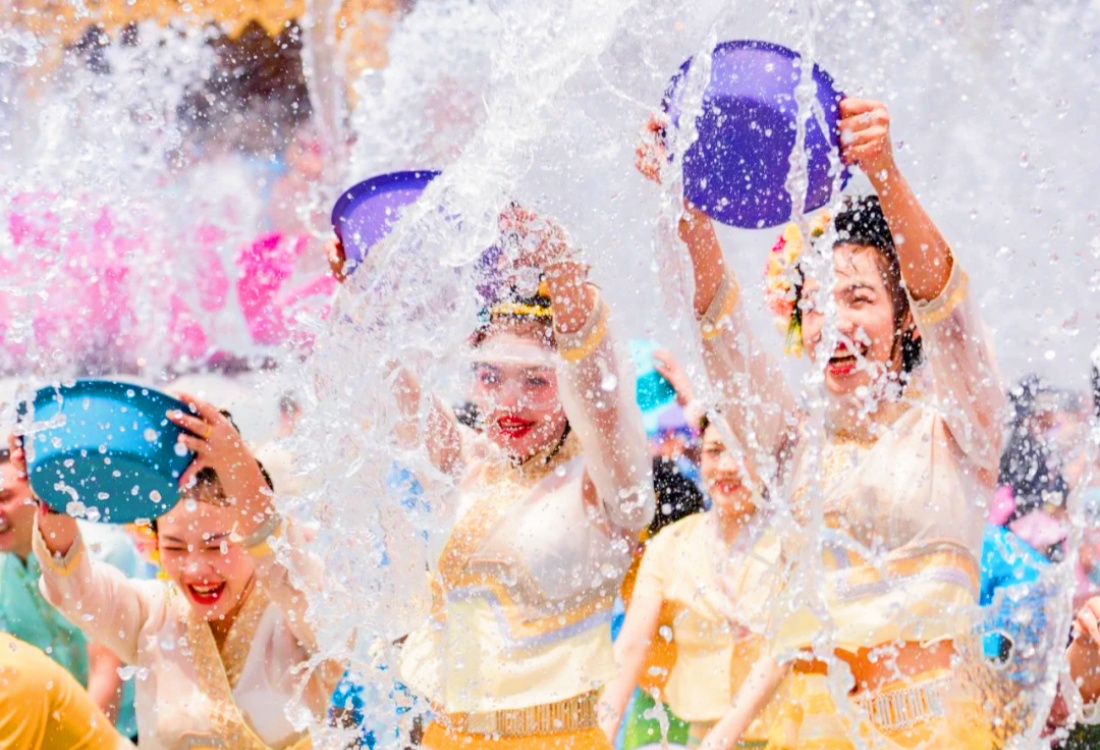
When: Mid-April (usually April 13–15)
Where: Xishuangbanna and Dehong
The Water Splashing Festival, celebrated by the Dai people, is one of the most well-known and joyful festivals in Yunnan. Often called the “Dai New Year”, this event is a blend of Buddhist rituals and water-based revelry. It marks the end of the dry season and the beginning of the new year.
The festival starts with religious ceremonies, such as bathing Buddha statues and lighting lanterns on rivers. Then comes the highlight: massive water fights in the streets. Locals and tourists alike drench each other with water, symbolizing purification and blessings for the year ahead. If you’re in Xishuangbanna during April, don’t miss this exhilarating and spiritual experience!
Torch Festival (火把节) – Yi, Bai, Naxi and Lisu Peoples
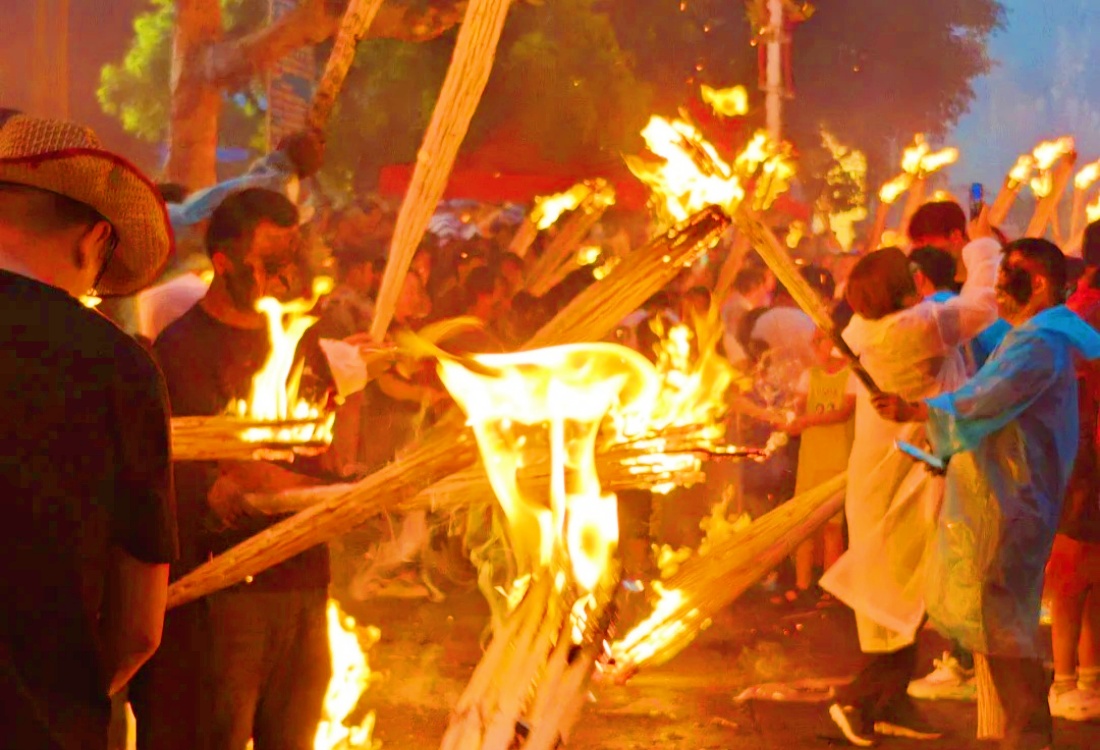
When: Late June to early August (24th or 25th day of the 6th lunar month)
Where: Chuxiong, Dali, Lijiang
Celebrated primarily by the Yi ethnic group, along with the Bai, Naxi, and Lisu, the Torch Festival is an ancient tradition meant to ward off evil and pray for a good harvest. Locals light huge torches, dance in circles, and sing traditional songs late into the night.
In places like Chuxiong, this festival also includes horse racing, wrestling competitions, and ethnic costume shows. It’s a great opportunity to enjoy authentic rural hospitality and witness communities preserving their centuries-old traditions.
March Fair Festival (三月街) – Bai People’s Cultural Gathering
When: 15th–21st day of the third lunar month (usually April)
Where: Dali Old Town
The March Fair or “Third Month Street” Festival is a major Bai ethnic event held at the foot of Cangshan Mountain near Dali. Originating as a Buddhist temple fair during the Tang Dynasty, it has evolved into a week-long extravaganza of trade, horse markets, music, and dance.
Traditional Bai opera, singing contests, and martial arts performances take center stage. Locals dress in their ethnic best, and visitors can shop for silver jewelry, ethnic clothing, herbal medicines, and regional snacks. It’s a perfect blend of commerce, faith, and festivity.
Knocking on the Dragon Boat Festival (端阳节敲龙舟) – Zhuang People
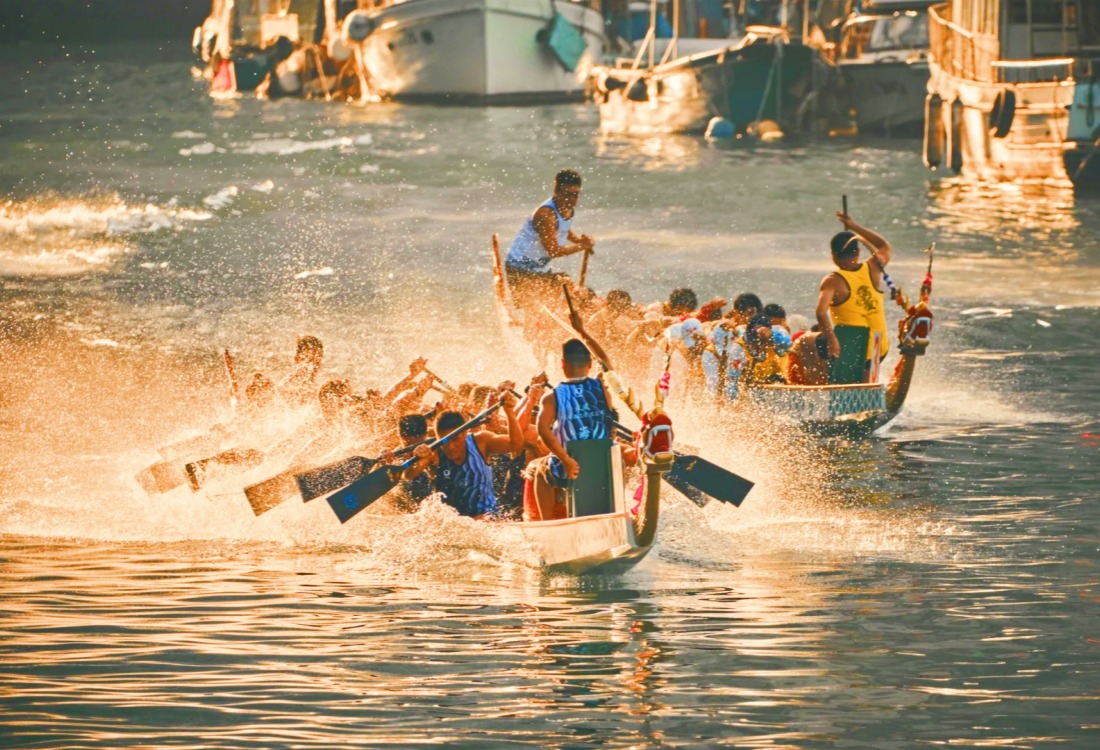
When: Same as Dragon Boat Festival (5th day of the 5th lunar month)
Where: Wenshan Zhuang and Miao Autonomous Prefecture
Different from the Han Chinese Dragon Boat Festival, the Zhuang version in Yunnan features not only boat races but also Zhuang folk songs, sticky rice dumplings, and ritual performances to honor ancestors and water spirits. In Wenshan, villages line the rivers as vibrantly decorated dragon boats compete while drums echo across the valley.
Kuoshi Festival (阔时节) – Lisu New Year Celebration
When: December (timing varies by village)
Where: Nujiang Lisu Autonomous Prefecture
The Kuoshi Festival is the most important celebration for the Lisu ethnic group, observed as a New Year and harvest festival. The word “Kuoshi” means “to celebrate a good year” in the Lisu language.
Festivities include traditional Lisu dancing, buffalo fights, singing competitions, and massive feasts featuring grilled meats and millet wine. It’s a deeply communal experience, with villagers preparing for weeks and celebrating together as extended families.
Tips for Experiencing Yunnan Festivals
-
- Plan Ahead: Many festivals follow the lunar calendar, so dates may change each year. Check local tourism calendars.
-
- Respect Local Customs: Ask permission before taking photos, especially during religious or family ceremonies.
-
- Dress Modestly: Some ethnic groups are conservative, so dress respectfully, especially in villages or temples.
-
- Bring Cash: In rural areas, mobile payment may not be accepted.
-
- Stay in Local Homestays: This offers an immersive experience with local families and often includes traditional meals and participation in celebrations.
A Cultural Journey Through Yunnan
From water battles and torchlight dances to boat races and song festivals, Yunnan’s ethnic festivals reflect the province’s deep cultural richness and diversity. Whether you’re a culture enthusiast, photographer, or simply a curious traveler, these celebrations offer a deeper connection to the soul of Yunnan. Be sure to time your visit around one of these vibrant events—you’ll leave with memories that last a lifetime.

